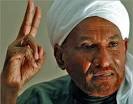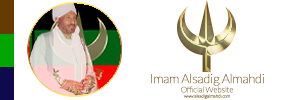
Feb. 1996
A political Democratic system For Sudan
The Sudan has been ruled in its recent past by six regimes. Three were democratic, and three were military based dictatorships. The three democratic regimes ruled in the following periods:.
The first : 1954-1958
The second : 1964-1969
The third : 1985-1989
The three military based regimes ruled in the following periods:
The first : 1958-1964
The second : 1969-1985
The third : 1989-1996 …etc.
During the democratic periods, democracy suffered an uphill task for the following reasons :
(a) All modern systems and institutions suffer from the problems of transplantation in traditional social environments. Those problems have not been researched thoroughly enough to be adapted to the country’s cultural and social conditions. This points to a gap in the study of comparative democracy.
(b) The political parties have been taken for granted to function as modern democratic institutions. Although some of them have managed to develop themselves along such lines, others have failed to do so. The approval of political parties should have been regulated by a specific legislation which spells out certain national and democratic requirements to be fulfilled by the political parties to gain legality A certain specialized court should have been established to judge upon any disqualifying drawbacks. There are certain principles and balances which should be respected by all units of political activity in the interest of stability and nation building . They should be incorporated in a National Charter to be observed by all the political parties.
(c)The trade-unions have failed to observe any type of self-discipline. They simply became vehicles for social and economic de stabilization. Legislation should detail regulations for trade -union registration. That legislation should attempt to make them function as proper democratic- industrial institutions. A social charter should be agreed upon to impose a degree of discipline upon the trade- unions. A special court should be established to judge upon the irregularities.
(d) The press has behaved in a chaotic way abusing press freedom. Specific legislation should be enacted to spell out all the prerequisites for a free and balanced press. A press charter should be observed by all functioning units of the press. A press court should be established to judge upon irregularities.
(e) The Sudanese armed forces have cultivated an unhealthy tradition of political intervention. A restructuring of the armed forces, a review of its military schooling, and a through re-education must be undertaken to discipline the armed forces and to ensure its complete loyalty to the democratic political system and obedience to the elected civilian leadership.
(f) The democratic system in Sudan has suffered from the absence of checks and balances and honoured traditions to make the executive, legislative, and judicial branches of the state perform their proper functions and behave harmoniously. This gap must be filled.
(g) The Sudan is multi- cultural and multi- ethnic. It has a high degree of regional diversity and distance. This calls for a very high degree of decentralization. The requirements of decentralization, the development and modernization drive, and the need to present a symbol for National unity require a strong executive in a presidency which is directly elected by the people.
(h) The fact that the Sudan suffers from a low degree of Nation building, particularly in terms of lack of cohesion between North and South, has led to civil conflict which burdened the democratic system and de stabilized it. The causes of the civil conflict have now became quite clear and a National consensus about their resolution is emerging. This problem requires top national attention to be resolved as a pre- requisite for political Stability in the Sudan.
(i) In the interest of stability, the democratic constitution should outline certain principles and values to be respected by all legislation in the country. They are:
1- Nothing will be enacted which contravenes the basic religious beliefs of the peoples of the Sudan.
2- Nothing will be enacted which contradicts the Sudan’s commitments to the international charter for human rights.
The nine points outlined here describe a contractual democracy which should help the Sudan establish a democratic system which is true to the fundamentals of democracy, which are representative government, judicial independence, supremacy of law, basic freedoms, and basic human rights; and which is at the same time conscious of the country’s social and cultural conditions. This search for democracy is made all the more necessary because inspite of the problems encountered by democracy in the Sudan, its performance was by all criteria better than the performance of the military based dictatorial alternatives:
- In terms of economic performance, development and economic production has fared better under democracy than under dictatorship. The contrast between the two performances is greatest if we compare the economic performance of the third democracy (1985-89), and the third dictatorship (1989-96).
- Sudan’s international relations have been more stable, more friendly, and more balanced under democracy than under the military based dictatorships, especially as with the second and third dictatorships which engaged in leftist, rightist, and Islamisist axis policies which have been detrimental to Sudan’s national security.
- All the initiative to resolve the Southern conflict peacefully have been associated with the democratic systems, for example, the Round Table Conference 1965, the Twelve-man Committee 1966, the All Sudanese Party Conference 1967, the Kokadam declaration 1986, the Sudanese initiative 1988, the reconciliation programme 1987, the transitional programme which paved the way for the National Constitutional Conference scheduled for September 1989 but banned by the coup of 30th June 1989.
- The civil conflict in the Sudan has either been initiated under the regimes of dictatorship, or been escalated by them. The dates are: 1663, 1975, 1983, 1991.. It is true that under the first democracy (1954- 1958) there was insubordination in the Southern command of the Sudan armed forces. That was dealt with as an incident of military insubordination and completely contained. It is also true that the second military regime (1969-85) singed the 1972 peace accord with the leadership of Anyanya-I, the vehicle of armed Southern resistance at the time, but the dictatorial nature of the regime prevented the smooth functioning of the agreement, and ultimately led to a wider and more dangerous civil war in 1983. The 1972 peace agreement was based on the home work of the second democratic regime in Sudan (1964-69).. Therefore we may say that even with all its problems democracy has fared better than dictatorship in the Sudan. What is required for the Sudan is not to search for a dictatorial alternative to democracy, but to establish a democratic system which functions efficiently and minds the social and cultural conditions of the country.

